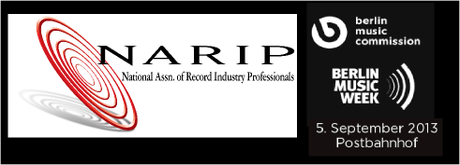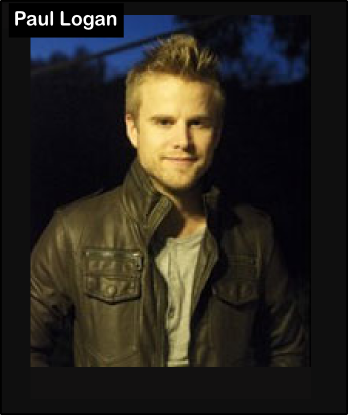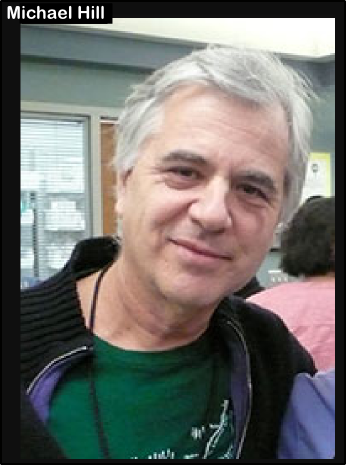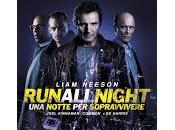
Eccoci arrivati al nuovo appuntamento con NARIP e Music Supervisor Sessions, che si terranno a Berlino il 05.09.2013. Seguono due interviste in inglese rilasciate direttamente dalla presidentessa Tess Taylor che ha condotto personalmente le interviste con i supervisors: Paul Logan e Michael Hill. Partecipare alle sessions offre la possibilità di capire i meccanismi di “pitch” di brani musicali a major film studios e produttori. E´ vitale anche per i filmakers stessi capire come disporre delle licenze adatte nei propri film. Incoraggio anche a seguire i seminari offerti da NARIP. Io stesso ho seguito il webinar di Giovedí 22 Agosto condotto da Taylor personalmente. Il settore sta diventando estremamente complesso e soprattutto competitivo. Narip é riuscita a raggiungere i 50 placement dal 2011, anno delle prime Supervisor Sessions. Potrete trovare più informazioni sotto questo link:
NARIP : placements & success stories:
http://www.narip.com/?page_id=7630 .
Ecco l´intervista di Paul Logan e i dati per registrarsi (Londra e Berlino) NARIP Music Supervisor Session with VH1’s Paul Logan In London Sep 2
http://www.narip.com/?page_id=5&task=form&id=415
NARIP Music Supervisor Session with VH1’s Paul Logan @ Berlin Music Week Sep 5
http://www.berlin-music-commission.de/256-0-Most-Wanted-Music.html

Photo(s) courtesy of NARIP.com
Interview by Tess Taylor:
What is the range of music supervision services you provide? Describe your job.
Our job is to find non-mainstream, hot-off-the-press music that can act as a catalyst for a full range of emotion in our shows, in both reality and scripted form. Once we lock a placement in, we pride ourselves on a tremendous amount of promotion for those spots, including on-air song IDs and 5-second ad cards, as well as a ton of online promotion on various VH1.com pages and social media sites. Our goal is to make each placement a beneficial experience for all parties involved. And by increasing viewership for the shows and sales for the artists, it’s a win-win for them and the network.
Tell us about your latest projects and what you are working on now and in the coming months.
I just wrapped up season 3 of Couples Therapy, and right now I’m working on season 3 of Basketball Wives LA, season 2 of Chrissy & Mr. Jones, and season 2 of Black Ink Crew. Basketball Wives LA and Chrissy & Mr. Jones both call for urban / pop, while Black Ink Crew calls for sophisticated hip hop. Coming soon will be additional seasons of our scripted hits Single Ladies and Hit The Floor. I’m also starting to help Country Music Television (CMT) with their musical offerings, as they have a huge slate of new and exciting original programming hitting the air, with more on the way.
How did you get into music supervision?
I’m forever indebted to all the incredible music supervisors who paved the way for more and more opportunities for the rest of us. I also wouldn’t be in this role without Jennifer Stilson Fleece, the ringleader of our music supervision team, as well as Rick Krim and Sandy Alouete, the EVP and SVP of our overall VH1 music team. I got my start at VH1 in 2006 in the Music Marketing group in New York, and then moved out to Los Angeles and worked in both VH1′s and MTV’s Music & Talent departments, doing talent booking for our programming and award shows. I learned a lot from those gigs about the music industry as a whole, and then Jennifer, Rick, and Sandy took a chance on me when I wanted to fulfill my dream of being in music supervision. Hopefully I haven’t let them down too much.
What does a music supervisor bring to a film or tv?
Music is integral to how a scene is interpreted by viewers, and music supervisors help create the right mood and setting through the music they use. Ideally, we’re seamlessly making you a part of what you’re seeing, getting you highly energized in an up tempo spot, or tugging on your emotions during a somber moment. And it’s a powerful vehicle for introducing you to new artists – I think of The O.C. as the perfect example; that show shined a light on Death Cab, Imogen Heap, Joseph Arthur, The Killers, and many more. What that show did well – and what we all strive to do – is created moment that resonated on a deep level, so that you become a fan of that artist’s music and think of the show when you hear those songs again in the future.
How do you perform music searches, where do you look, favorite resources?
Through our great relationships with many major and indie labels, publishers, managers, and artists, we are constantly being exposed to the newest music on the market, most times before it even hits the market. That’s not to say we don’t continue to look for new artists independent of that. We have a few people on our support team who do a tremendous job of finding new artists through friends, going to concerts, reading blogs, etc. As we screen all the incoming music, we’re consciously thinking of what would work for our current and upcoming shows. And we frequently reach out to some of those sources asking for music that fits the creative needsof the show.
How have NARIP music supervisor sessions helped you do your job?
NARIP’s Sessions are a great way for artists, managers, labels, and publishers to get direct contact with music supervisors and receive immediate feedback. I did a NARIP Session recently, and one such attendee, Jessica Cole from Lyric House Publishing, really did her homework on the sound of the show I was currently working on, and she was able to land five placements in that series. One-week sales increases for each of her five placements after the premiere episode averaged almost 5,000% versus the previous week’s sales.
Do independent artists and producers have a good chance to pitch their music and get it placed?
Independent artists and producers absolutely have a good chance to pitch their music and get it placed. They are a valuable resource to us on both a music discovery level and cost level, since they tend to have less writers and overhead costs. Assuming they are pitching correctly – not over-emailing, not leaving out copyright info, not reading the creative requests thoroughly, etc. – we love including the indie guys.
How can music providers better market their music to you?
Doing their homework is really the best way to increase a music provider’s chances of getting a placement. Find out how each supervisor likes to receive music, whether physically, digitally, or both, as well as making sure the music you pitch is in the right style of the show(s) the music supervisor is working on. It’s also a good idea to make sure whatever music you pitch is actually licensable – that all the writers have agreed on splits, samples are taken care of, those kinds of things. Also, having complete copyright information is of paramount importance.
What’s your preferred method to receive submissions?
Email is great, but do not attach mp3s; our email boxes can get maxed out easily since we’re on a corporate server. The ideal way to receive music is via a link (like box.com or SoundCloud) where we have the ability to stream the song first before downloading it. The issue with YouSendIt is that we have to download it first, then drag it into our iTunes, then audition it, and if it doesn’t work for our shows then we have go back in and delete the tracks. Therefore, if there’s a way for us to stream it before having to download it, that helps immensely. As far as receiving physical copies, those are great if you have all the writer and publishing info somewhere in the liner notes.
How challenging is it to deal with different budgets and at the same time keep in mind the director’s personal view of the music needed for a film or tv project?
In a perfect world, the director and/or producers are realistic about the budget. Unfortunately, we don’t live in a perfect world! We always love the passion for music that producers bring, but the budget ultimately dictates most of what we’re able to do. So, sometimes it’s easy, and sometimes it’s not. We have a really great flow at VH1 between our Music & Media Licensing team and the production managers, who do a great job of making it clear to producers what kind of budget we have based off the rights we need to clear for. Then it’s up to us to manage expectations and keep the show on budget, while helping the directors and producers enhance their show musically.
What would you recommend to a young music supervisor to enhance his career and work opportunities in this field?
I think what goes undervalued is a broad knowledge of the inner workings of a network and a supervisor’s overall duties. A lot of people just assume you have to know who the hottest indie bands are, which, while helpful, won’t get you too far. Knowing such things as post production, media clearance levels, and copyright law will make you a more well-rounded and desirable candidate. Any experience at a record label or publisher will also help you learn about things like artist promotion cycles, publishing deals, and negotiation.
MICHAEL HILL:

Photo(s) courtesy of NARIP.com
Michael Hill sará presente a Berlino il 5 Settembre. Ecco l´intervista e ulteriori dati per registrarsi:
NARIP Music Supervisor Session with Michael Hill (Nurse Jackie) @ Berlin Music Week Sep 5
http://www.berlin-music-commission.de/256-0-Most-Wanted-Music.html
Interview by Tess Taylor:
What is the range of music supervision services you provide? Describe your job.
I deal with all the music in a television show or film: the songs we license for scenes as well as the composed music. I stay in touch with the producers and directors in order to ensure that the composer is delivering the original music they want and try to ensure that the original score and the “source music” — the songs we license — work well together. I try to work in this holistic manner so that all the music fit together and sounds natural.
Tell us about your latest projects and what you are working on now and in the coming months.
I am returning to the Showtime Network series “Nurse Jackie” for our sixth season, selecting source music and working with our wonderful composer Pat Irwin. I am also working on an independent film currently entitled “Laggies,” with Keira Knightley and Sam Rockwell, about a young woman in Seattle questioning her marriage plans and befriending an unruly group of high school kids. It’s smart and fun. There are a few other films in development that I can’t go into detail about yet as well as another cable television series that I should know about very soon.
How did you get into music supervision?
I spent fifteen years as an A&R Director for Warner Bros Records, where I searched for new talent, reviewed incoming music, saw live bands all around the U.S. and occasionally in Europe, and worked with bands in the recording studio after we signed them to the label. One of my tape listeners — and, yes, this was in the era of cassette tape demos — became a film producer and asked for my help with his first project. I agreed to do it, and learned a lot from the experience. His second film, “The Myth of Fingerprints” with Julianne Moore, was picked up by Sony Pictures Classics and did well at Sundance, and suddenly I found myself at the start of a new career. And it came just in time: I left Warner Bros in 1998, just as the fortunes of the major labels began to fall dramatically and so many jobs were being cut.
What does a music supervisor bring to a film or TV?
A music supervisor can set the mood for a project, as I think I did with the HBO series “Bored To Death,” where I created the sound of a kind of mythical Brooklyn. The sound was significant to the atmosphere and point of view — and the comedy — of the show.But a music supervisor also needs to help make music part of the overall scene, make it feel as natural as the set design and the location — to make an impact with the music at times by having it blend in as much as to underscore a scene, an idea or an emotion.
When you work on different types of projects what are the most noticeable differences between supervision for television broadcast and feature films?
Television is a fast and furious medium. We work on strict deadlines and there is a protocol to follow: the editor does a cut, the director delivers a cut, the producers do a cut and then the network makes its own notes. The music evolves throughout this process, sometimes changing with each cut, over a matter of a few weeks.
In a film, it’s much more about the director’s vision and the time allowed to edit and sculpt a film can be quite long in comparison to television.
It’s fun to work with a smart, creative film director — and I love independent film makers — but there is something satisfying about the quick turnaround of TV: no opportunity to second guess. Everyone needs to remain focused.And TV, in the States at least, has become a wonderfully creative medium, with great writing and great talent — at its best, reminiscent to me of the great American cinema of the seventies. I would have never predicted this but it’s true, from “Mad Men” to “The Sopranos” to “Nurse Jackie”….and so many more.
How do you perform music searches, where do you look, favorite resources?
I start with my mental music catalog, thinking about the music I would choose, then I move on to my iTunes library, to my stacks of CDs, and to the Internet. Then I go to the databases of music licensing companies, record labels or music publishers to search or I use the thumb drives or hard drives they have given me. Finally, I send search emails to a small group of music licensors whose taste I trust and who have provided me with good ideas in the past.
How have NARIP Music Supervisor Sessions helped you do your job?
I have been introduced to some very interesting music composers, producers and licensors through NARIP, and in fact used two songs from a NARIP participant in Ramin Bahrani’s film drama, “At Any Price,” with Dennis Quaid and Zac Efron, which Sony Pictures Classic released in the states this spring.
Do independent artists and producers have a good chance to pitch their music and get placed?
It’s easier to reach me through a reputable publishing or licensing company, but if I have seen an independent band perform or met a music producer at an industry event and became interested in hearing their work, then perhaps I would use their music. But just sending an email with links or attachments won’t work; there is just too much material out there and too many emails coming in every day. It’s just hard to find the time to review all of it carefully enough. I try to listen to as much as I can, though.
How can music providers better market their music to you?
I like having the ability to stream and download music from a provider’s site, to find music categorized in a smart and easy-to-navigate way, or at the very least to have links that don’t expire quickly. In terms of direct pitches, it helps if the music provider has seen, for example, a TV series I am working on, and will put together a sampler of music they might feel is appropriate. That’s a good way to gauge the strength of a catalog and the creativity of the provider. It’s never good when a music provider sends a message, or calls on the telephone, and asks, “What are you looking for these days?” Better to do your homework and know, via IMDB.com, what I am currently working on
What’s your preferred method to receive submissions (email, dropbox, YouSendIt, Soundcloud, etc.)?
I use all of them — emails, dropbox, soundcloud (if I can listen AND download), CDs…by whatever means necessary, I say! I like the dropbox model, in particular, because of its cloud storage function, but I am mindful of having a backup for music I need to keep on hand. My only preference is to get the music I need quickly and efficiently.
How challenging is it to deal with different budgets and at the same time keep in mind the director´s personal view of the music needed for a film or television project?
Budget and vision often work in opposition, but I try to offer alternatives to music that I might not be able to afford in order to honor a director or a show-runner’s vision. Perhaps I can introduce them to music they might not have heard before but that might address their wishes as well as a son that’s more familiar. I don’t like to say “no way,” but rather “how about this?” I try to understand the essence of what they are looking for and find appropriately priced choices — and I like to provide a range of choices. Sometimes, of course, only the expensive song will do — and in that case, the producers have to weigh in about the budget and how far they are willing to go. There are always alternatives to be found if people have the time to listen.
What would you recommend to a young music supervisor to enhance his career and work opportunities in this field?
Listen to as much music as you can, go out to as many shows as you can, meet as many artists, producers, publishers and label people as you can. Knowledge is your greatest tool, so learning as much as you can about a wide variety of music and who controls the rights for it is important. Then take on a lot of projects, even low-budget ones or student films, to get experience and to learn even more by doing. My career evolved through meeting people along the way who took a chance on me, mentored me, and nurtured me. Being out in the world of music all the time, being a good listener as well as a good talker, is the only way to find those people who may offer you opportunities.
Sources for more info:
Michael Hill on IMDB link to: http://www.imdb.com/name/nm0384522/?ref_=fn_al_nm_2
NARIP.com NARIP Music Supervisor Sessions in the News
Link to: http://www.narip.com/?page_id=11624
Nurse Jackie link to http://www.sho.com/sho/nurse-jackie/home






